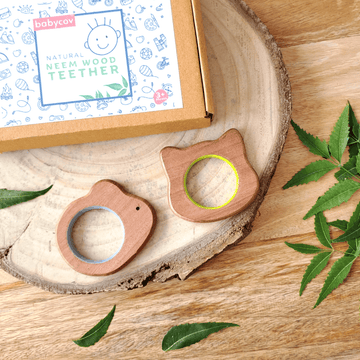Mouse and Cat Neem Wood Teether Babycov
Mice benefit greatly from enrichment toys, including those made from teeth-safe wood, which promote dental health and physical activity.
-
Chewing: Mice have continuously growing teeth, so providing teeth-safe wood toys helps manage dental health by preventing overgrowth. The wood should be untreated and free from chemicals or pesticides to ensure safety.
-
Physical Activity: In addition to dental benefits, wooden toys provide opportunities for climbing and exploring, which is essential for physical exercise and mental stimulation.
Care:
-
Cleaning: Regularly clean wooden toys to remove waste and debris. Use a mild, pet-safe cleaner and ensure the toy is thoroughly dried before returning it to the cage.
-
Inspection: Check wooden toys frequently for splinters or signs of damage. Replace any toys that are broken or overly worn to prevent injury.
-
Variety: Rotate different types of wooden toys to keep your mouse engaged and prevent boredom.
2. Cat Care
Description:
Cats also benefit from teeth-safe wood toys, which can help maintain dental health and provide enrichment.
-
Chewing: While cats don’t need to chew as much as rodents, they can still benefit from chewing toys made of safe, untreated wood. These toys help with dental hygiene by reducing plaque and tartar build-up.
-
Play and Exercise: Wooden toys can also be used for interactive play. They can stimulate a cat’s natural hunting instincts and provide both physical and mental exercise.
Care:
-
Cleaning: Wooden toys should be cleaned regularly to remove any dirt or saliva. Use a mild, pet-safe cleaner and allow the toy to dry completely.
-
Inspection: Inspect toys for any signs of wear, such as splinters or loose parts. Discard and replace damaged toys to prevent injuries.
-
Variety and Supervision: Provide a variety of toys to keep your cat entertained and monitor their playtime to ensure they’re using the toys safely.
















